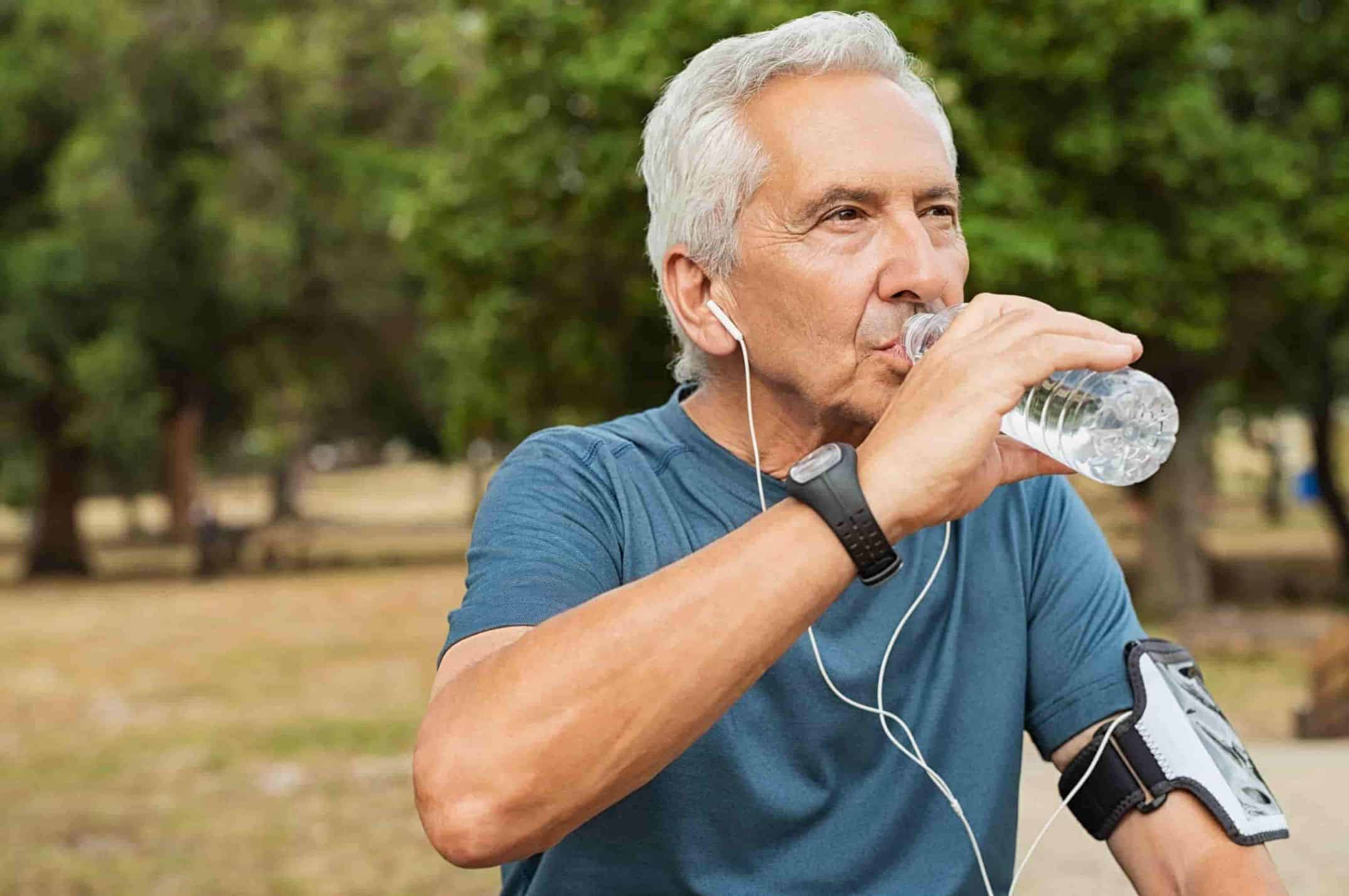
Warm, sunny days during the summer months means spending plenty of time outdoors in the fresh air. Whether it be taking a walk around the neighborhood or reading a book on a park bench, you have countless opportunities to have some fun in the sun!
While spending time outdoors can bring about many health benefits, including getting your daily dose of vitamin D, there are some potential consequences you should be aware of – one of which being dehydration.
Dehydration occurs when your body doesn’t have as much fluid as it needs to properly function. That is, you lose more fluid in your body than you are taking in. Proper hydration is important for overall health and wellbeing at all ages, but it is especially crucial as we grow older.
Thankfully, there are a few tips to keep in mind for you to stay hydrated and take delight in the summer months in a healthy way.
4 Tips to Hydration for Seniors
- Drink Plenty of Fluids: Of course, the most important tip to keep in mind when ensuring proper hydration is to drink plenty of fluids. To make it easier for yourself, carry a water bottle or cup with you at all times to keep track of your fluid intake. And, to spice things up, your fluids don’t always have to be water – try juice, milk or water flavored with some lemon or lime to add variety to your drinks throughout the day. Discuss with your healthcare provider about the proper amount of fluids you should consume each day; while the general recommendation is to have eight glasses of water a day, the level of fluid necessary can depend on your specific needs and activity level.
- Learn the Signs of Dehydration: Knowledge is power, and this certainly applies when it comes to understanding what your body is trying to tell you about your hydration level. Learning the signs of dehydration allows you to increase your fluid intake before more serious side effects take place. Although each person may experience dehydration in different ways, the Mayo Clinic lists common signs of dehydration in adults as:
- Extreme thirst
- Less frequent urination
- Dark-colored urine
- Fatigue
- Dizziness
- Confusion
- Eat Fruits and Vegetables: Water isn’t the only thing that can help your body’s fluid levels! Fluid-rich produce like fruits and vegetables holds higher levels of water and can help your body function properly. Foods that aid in hydration include cucumbers, watermelon, pineapple, celery and blueberries.
- Keep Your Body Cool: While drinking water is the best way to prevent dehydration, regulating your body temperature helps, too. Wear loose-fitting clothing in light colors and take solace in the shade when you need a break from the sun’s rays.
Learn About Proper Hydration and Other Wellness Opportunities at Heritage Senior Living
At Heritage Senior Living, we take a person-centered approach to care, meaning we work with each of our residents to ensure their overall health and wellness goals are being met – whether it be proper hydration, fall prevention or rehabilitation following a hospital stay.
Our communities offer a full continuum of care, including independent living, assisted living, enhanced assisted living and memory care. This means we can offer the right amount of care for each resident’s individual needs.
Learn more about Heritage Senior Living by contacting our team today.

